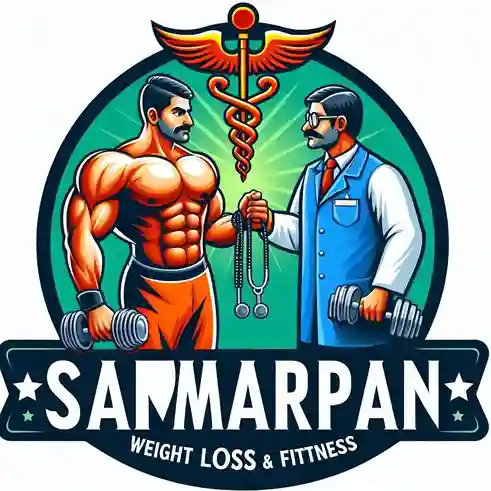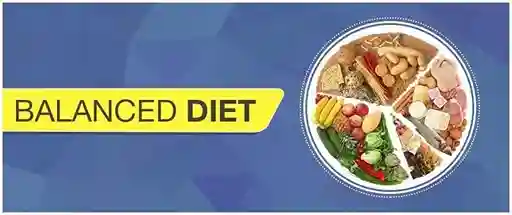Balanced Diet
A balanced diet is the cornerstone of good health and well-being, providing the body with the essential nutrients it needs to function effectively. It includes a variety of foods in the right proportions to supply the energy, vitamins, minerals, proteins, carbohydrates, and fats required for optimal growth, repair, and maintenance of the body.
A balanced diet supports the immune system, enhances mental clarity, promotes physical fitness, and reduces the risk of chronic diseases. By prioritizing wholesome, nutrient-dense foods over processed options, individuals can cultivate a sustainable and healthful eating pattern that nurtures both body and mind.
A balanced diet: what is it?
A diet that meets all of a person’s nutritional demands is said to be balanced. There is a calorie and nutritional need for human health. All the nutrients a person needs should be included in a balanced diet without exceeding the advised daily calorie consumption. Adults typically require 1,600 to 3,000 calories per day, however, this may vary based on a person’s sex, age, and activity.
People can acquire the calories and nutrients they require while avoiding junk food and low-nutrient foods by eating a balanced diet.
In the past, the USDA (United States Department of Agriculture) advised adhering to a dietary pyramid. However, they now advise assembling a balanced meal and consuming foods from the five groups due to advancements in nutritional research.
What Makes a Balanced Diet Crucial?
A well-balanced diet permits you to maintain your health every step of your life and reduces your risk of developing chronic illnesses and maladies. You perform at a lower level and may encounter episodes of infection, exhaustion, mental fog, or other health issues when you eat poorly.
A poor diet is strongly linked to several of the top causes of mortality, such as cancer, stroke, heart disease, and type 2 diabetes.
Comprehending Calories
There is a calorie count associated with the meals you consume. Calories are a measurement of the amount of energy your body produces during the breakdown and metabolism of food, not a physical component.
Your body’s calorie requirements are influenced by your age, gender, and degree of exercise.
Generally speaking, guys require more calories than women. Young adults between the ages of 14 and 30 have the highest calorie needs of any age group, whereas children have lower calorie needs than adolescents. Adult calorie requirements decrease with age, thus an 85-year-old would require fewer calories than a 50-year-old.
What Advantages Does Eating a Balanced Diet Offer?
Maintaining a balanced diet has different periods of health advantages. It lowers your chance of developing chronic illnesses, helps you control your weight, and boosts your immune system. It also enhances general well-being and energy levels by supplying vital nutrients.
Advantages of a Healthy Diet for Adults
For adults to maintain optimal physical and mental health, a balanced diet is crucial. Adults can benefit greatly from eating a balanced diet, which lowers their chance of developing chronic illnesses and enhances their quality of life.
The following are some main advantages of a balanced diet:
- Weight management: Eating a balanced diet helps one reach and maintain a healthy body weight by providing necessary nutrients without adding extra calories.
- Decreased chance of Chronic Illnesses: Eating meals high in nutrients reduces the chance of developing diseases such as heart disease, type 2 diabetes, high blood pressure, and several types of cancer.
- Increased Energy Levels: A healthy diet fuels the body, which raises energy levels and boosts output.
- Better Mental Health: Foods high in nutrients help the brain work, control mood, and handle stress, which lowers the risk of anxiety, depression, and cognitive decline.
- Improved Digestive Health: Regular bowel movements and healthy gut flora are encouraged by a diet high in fiber, fruits, vegetables, and probiotics.
- Healthy diet for healthy hair: A diet high in protein, iron, omega-3 fatty acids, zinc, selenium, biotin, and vitamins (particularly C, A, and E) encourages the development and thickness of healthy hair.
Advantages of a Healthy Diet for Kids
There are several advantages to eating healthily as a youngster that support general growth and well-being:
- Healthy Growth and Development: Kids who follow a balanced meal plan get the vital nutrients they need for healthy growth, development, and general well-being.
- Stronger Immune System: A nutritious diet high in nutrients strengthens the immune system and aids in the battle against illnesses, infections, and children.
- Better Academic Performance: Eating a healthy diet promotes cognitive function, which enhances focus, memory, and academic performance.
- Creating Healthy Habits: Promoting a balanced diet lowers the risk of obesity and associated health problems in adulthood, improves early development, and lays the groundwork for long-term well-being.
Essential Elements of a Well-Balanced Diet:
Micronutrients consist of vitamins and minerals, water, proteins, carbohydrates, and fats or lipids are the basic components of a well-balanced diet.
carbs: Since they provide you energy, 50–60% of your diet should be made up of carbs. Even while carbohydrates are an important part of your diet, you shouldn’t treat them all the same.
Good sources of carbohydrates include:
- Whole grains such as quinoa and oats
- Complete wheat and dahlia legumes
- Millets such as barley, bajra, and ragi
- Veggies
Protein: The growth of muscles, skin, and hair is aided by protein. Ten to twelve percent of your diet should consist of it.
Protein sources include:
- Beans, legumes, and soy
- Turkey, chicken, and seafood, including fish, crab, prawns, and lobster eggs
- Lean meat: beef, pork, lamb, plus nuts & seeds
- Greek yoghurt
Fat – It’s a common misperception that fats are unhealthy. The ideal option would be to choose healthy fats since they aid in the absorption of fat-soluble vitamins ADE and K and help you maintain your body temperature.
Sources of good fat include:
- Nuts
- Avocados
- Seeds
- Fish high in fat: salmon, sardines, mackerel, and herring Extra virgin olive oil
Vitamins: You should take measures of vitamins A, C, B, and D, even though there are thirteen vital vitamins.
Vitamins can be obtained from:
- Fruits
- Vegetables
- seeds
- Nuts
- Poultry
Minerals: Minerals facilitate the breakdown of energy from meals and assist the development of organs. Iodine, calcium, potassium, iron, and salt are a few characteristics of important minerals.
The following are mineral sources:
- Cereals
- Fish Meat
- Nuts
- Seeds
Fibre – In addition to aiding in digestion, fiber also lowers cholesterol and regulates blood sugar levels.
Sources of fiber include:
- Brown rice, quinoa, dahlia, and oats
- Beans
- Whole grains
- Seeds and nuts
Water: Since water hydrates your body and is necessary for many bodily processes, you should consume eight glasses or more of it each day.
Dairy –
Dairy Products Among the essential components are:
- Protein
- calcium
- A diverse and balanced diet often consists of large servings of fresh, plant-based meals and little to no processed food. Make an appointment with your physician or a dietitian if you believe you need to alter your eating patterns or reduce your weight.
dietary vitamin D
They contain a lot of fat as well. If you’re looking to reduce your intake of fat, lower-fat items can be the best option. Before choosing, speak with your doctor.
Nowadays, vegans can select from a large range of dairy-free kinds of milk and other dairy substitutes derived from:
- Almonds and cashews with flax seeds
- Coconut, soybean cereals,
- These are often fortified with calcium and other nutrients, making them excellent alternatives to dairy products derived from cows. Pay close attention to the label while choosing because some include added sugar.
Items to avoid for a Well-Balanced Diet:
To live a healthy life, stay away from the following foods:
- Red meat
- Cereals and refined grains, such as pasta, noodles, white bread, maida, and swain
- Cheese, butter, and trans fat
- Added sugar
- Pastry
- Foods that have been processed
What Makes a Balanced Diet Crucial?
A well-rounded diet is essential for several reasons:
Ensuring the body gets all the nutrients it needs for optimum performance is known as nutritional sufficiency.
- Disease Prevention: Lowers the chance of developing long-term conditions including diabetes, heart disease, and some forms of cancer.
- Energy Levels: Offers consistent energy for everyday tasks all day long.
- Weight management lowers the risk of obesity and promotes healthy weight maintenance.
- Better mood, cognitive performance, and general mental health are all influenced by mental well-being.
What Effects Does Diet Have on Skin?
One thing that might affect your skin is your diet. Certain foods may cause blood sugar levels to rise more quickly than others.
A sharp increase in blood sugar causes the body to produce insulin-like growth factor 1, a hormone that regulates the consequences of growth.
Your risk of acne and inflammation may increase if your blood has an excess of IGF-1, which can trigger your oil glands to create more sebum.
The following are some things that might raise blood sugar:
spaghettiLeafy, dark greens are an excellent source of many different nutrients.
White bread, white rice, and sweets
These foods are categorized as “high glycemic” carbohydrates. Thus, they are made of simple sugars. Additionally, chocolate is thought to make acne worse.
However, there aren’t enough reliable statistics to back up this assertion. Numerous academics have looked at the connection between acne and a so-called “Western diet” or “standard American diet.”
This diet type’s cornerstone is:
- Dairy products contain saturated and trans fats and carbs that raise blood sugar levels.
- It has been demonstrated that these meals raise hormone production, which might cause oil glands to develop and secrete more oil. They also found that a Western diet is linked to higher levels of inflammation, which might potentially make acne worse.
Conclusion
To sum up, eating a balanced diet is essential to reaching optimal well-being, and keeping excellent health is of the highest significance. A balanced diet and knowledge of nutrition can help people maintain their mental, emotional, and physical well-being.
People may take proactive measures to control their health thanks to Metropolis Labs’ precise blood tests and health screenings. Convenient blood sample collection at home is provided by our staff of skilled experts, and reports are readily available online. Take charge of your health right now by putting your trust in Metropolis Labs for dependable pathology services.
FAQs
Which foods make up the seven-balanced diet?
Eating right and maintaining your health should be simpler if you know how to balance your diet. A balanced diet consists of seven elements: water, vitamins, minerals, fiber, protein, fat, and carbohydrates.
Why is maintaining a balanced diet so important?
Your body gets the nutrition it needs to function at its best from a well-balanced diet. When you don’t consume a balanced diet, your body is more susceptible to disease, infection, fatigue, and poor performance. Children who don’t eat enough healthy meals may struggle academically, have growth and development problems, and become sick frequently.
A diet chart: what is it?
In essence, a diet chart is a list of items that are allowed and not allowed. Several diseases can develop in the body as a result of bad food choices. Lifestyle diseases like diabetes and obesity are great examples of the harm that may result from poor food decisions.
What does a healthy diet look like?
It emphasizes the value of fruits, vegetables, whole grains, and milk and milk products that are low in fat or other contaminants. comprises a variety of foods high in protein, such as shellfish, eggs, legumes (beans and peas), lean meats and poultry, almonds, seeds, and soybean products. lower in cholesterol, trans fats, saturated fats, added sugars, and salt.
What kind of diet is considered balanced?
An individual’s nutritional demands are all met by a balanced diet. It includes foods from the following five categories: grains, dairy, fruits, vegetables, and protein.
A diet chart: what is it?
A diet chart is essentially a list of foods that are allowed and those that are not. A variety of diseases can arise as a result of bad dietary choices. Eating the incorrect foods can lead to lifestyle disorders like obesity and diabetes.
Is milk a balanced diet?
In addition to other vitamins and minerals, milk is a fantastic source of calcium. It is essential for bone health.
References
- Samaddar, R. (2021, May 1). Balanced Diet – Definition, Importance, Benefits & Diet Chart. Max Healthcare. https://www.maxhealthcare.in/blogs/what-is-a-balanced-diet
- Krans, B. (2023, November 20). Balanced Diet. Healthline. https://www.healthline.com/health/balanced-diet#calories
- Fletcher, J. (2024, August 20). A guide to eating a balanced diet. https://www.medicalnewstoday.com/articles/324093#summary
- WebMD Editorial Contributor. (2023, July 14). What Is a Balanced Diet? WebMD. https://www.webmd.com/diet/what-is-a-balanced-diet
- Sharma, A. (2024, April 2). Balanced Diet – Importance, Definition, Benefit & Diet Chart. Mobile Physiotherapy Clinic. https://mobilephysiotherapyclinic.in/balanced-diet/



115 Comments